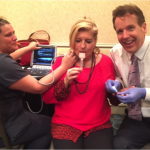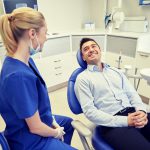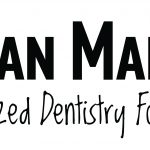I have been a clinical hygienist since 1979. When I earned my degree in Dental Hygiene, I was very happy, idealistic and excited about caring for patients. I felt I was on a mission to improve people’s lives through better oral health. Being young and starry-eyed , I was not prepared for the reality of working in a dental practice. I found, to my great surprise, that most of my patients were not interested in the education about their oral health that I had been trained to provide. They just...
Read More
Salivary Diagnostics
Life & Death and a Saliva Test

Sometimes I get so frustrated with the profession of dentistry. Here is my case in point: Five oral originating pathogens have been identified as causative in the development of atherosclerosis by the BaleDoneen™ peer reviewed study published in the British Medical Journal. Wait a minute, so they concluded that these oral bacteria are causative of atherosclerosis? Seriously? Yes!! And in the last one hundred years, atherosclerosis has killed more Americans than any other disease. Atheroscler...
Read More
Patient with Dental Pain, Periodontal Disease & High Blood Pressure

Challenge: To address the dental concerns to resolve patient’s dental pain. To educate the patient on the connection between dental health and overall health.
Background: The patient is a 37-year-old male who presented with a dental pain emergency. The home care is poor and patient has history of only seeking dental care for emergencies. Medically, the patient has hypothyroidism, hypertension, high cholesterol and significant difficulty breathing while asleep. The blood pressure reading o...
Read More
Interview with Dr. Lisa Marie Samaha

Dr. McGlennen: Tell me how you use OralDNA® salivary diagnostics.
Dr. Samaha: OralDNA® testing has been a standard and integral part of our intake of all patients with periodontal disease since early 2007. Our practice is well known for our protocol of diagnosing and treating periodontal disease and increasing total health profiles. Although I am a general dentist, over 95% of our new patients have some form of periodontal disease, from gingivitis to advanced, aggressive levels and we do ...
Read More
An Uncontrolled Diabetic Patient – Referred by Physician
Background: The patient is a 41-year-old female who has not been seen by a dental professional since 2008 (10 years). The patient stated her chief concern as “My doctor said my uncontrolled diabetes could be caused by my mouth.” Other medical concerns are high blood pressure and acid reflux. The home care routine consisted of manual tooth brushing only. Following the periodontal assessment, the patient was diagnosed with active, localized, chronic periodontitis due to the present sub-gingiva...
Read More
A New Conversation with Your Patients

How do we introduce the idea of salivary testing to our patients? As is the approach with every dental procedure or service we recommend for our patients, the primary consideration is excellent communication. Some recommendations are routine and no explanation is necessary, including fillings and fluoride, among many others.
When we introduce new procedures or services to our patients some explanation is appropriate. DNA salivary testing for bacteria is a good example. So what should we say w...
Read More
Everyone Has A Story

Every patient that sits in your dental chair has a story. All stories have a beginning, middle, and end, as does life. We have the wonderful opportunity to help our patients be able to live a long and productive one. Jumping to the middle of my story, my mom died at the age of 58 and my dad at age 60, both from end stage vascular diseases. They didn’t get a chance to enjoy their children into their adult years, get time with their grandchildren, or even meet their great grandchildren. I, li...
Read More
Establishing New Treatment Objectives for Periodontal Disease

The principles of leadership that drive achievement have the practitioner state the objectives prior to initiating an action plan. Success is more certain and predictable, while any short falls become measurable and remedies are tied to the metrics of the initial objectives.
The traditional treatment objectives for periodontal therapy have revolved around certain soft and hard tissue architectural end points and bleeding on probing. These standards have been in place for about 100 years a...
Read More
Oral HPV Awareness Campaign: Part 2

Currently about 72% of all OPCs (Oropharyngeal Cancers) are the results of an oncogenic HPV infection—and very few of these cancers are found in the front of the mouth. HPV-Oral Pharyngeal Cancer (HPV-OPC) develops at the deep base of the tongue or behind of the curtains of the tonsillar pillars. Sadly, there is no effective screening method for early cancer detection.
While we fumble with the words to say and the warnings to issue, we are literally watching the HPV epidemic unfold before...
Read More
Oral HPV Awareness Campaign: Part 1

As a Total Health Dental Practice, there was one particular oral disease my team was not comfortable discussing—even though it is deadly and its epidemic has escalated to horrific proportions. You guessed it…HPV-related Oral Pharyngeal Cancer (OPC). Don’t get me wrong; our responsibility to complete our 9-point screen for oral cancer is routinely completed. But we knew the screening exam—was completely ineffective in screening for the risk of HPV-OPC.
In brainstorming about our weakness, ...
Read More
